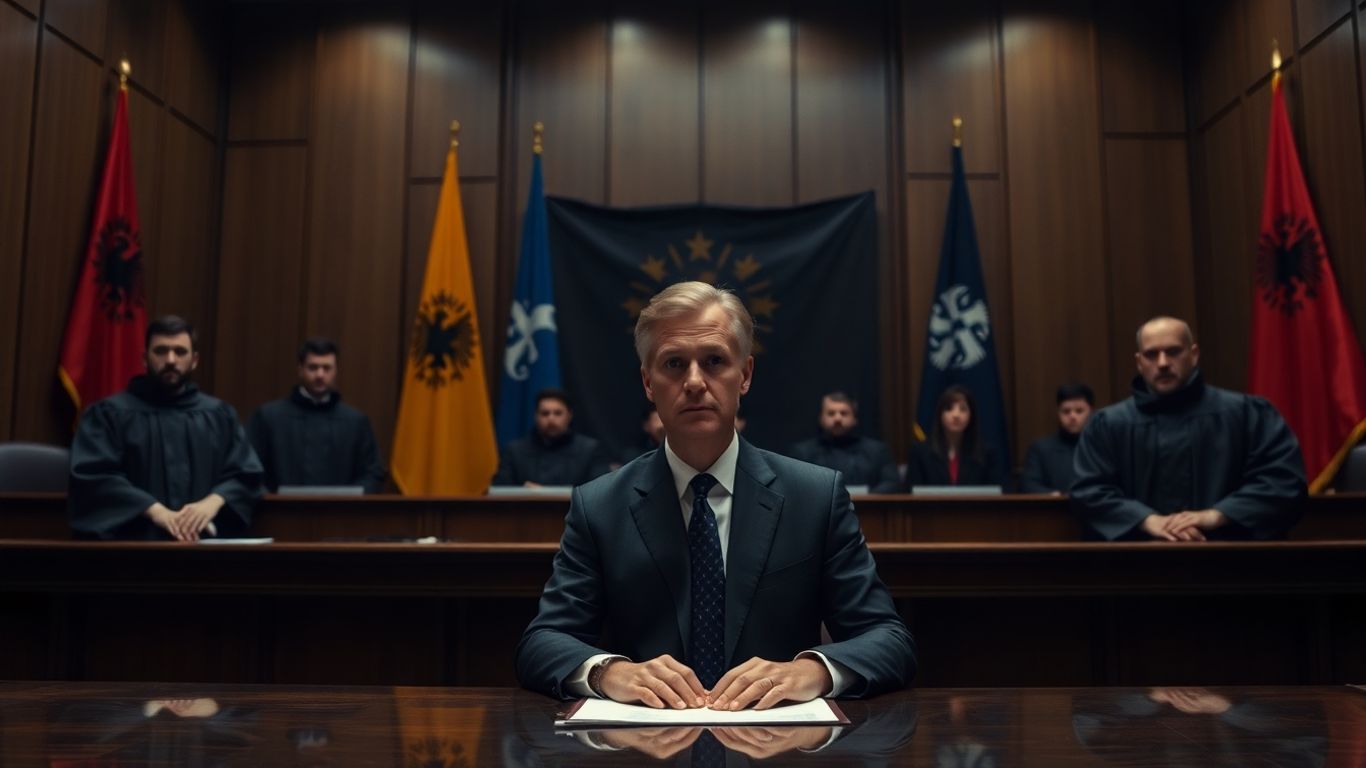As the much-anticipated verdict for former Kosovo president Hashim Thaçi approaches at The Hague, the outcome is set to reverberate across Kosovo, the Balkans, and international diplomatic circles. The trial has tested the integrity of international justice and highlighted deep political divisions within and beyond Kosovo.
Key Takeaways
- Hashim Thaçi faces serious war crimes charges based on his political leadership of the KLA during 1998-1999.
- The trial’s result could drastically impact Kosovo’s political future and regional stability.
- Western political involvement and perceptions of bias shape both the process and public expectations.
Background: The Charges and Legal Arguments
Hashim Thaçi and three other former leaders of the Kosovo Liberation Army (KLA) have been on trial in The Hague’s Kosovo Specialist Chambers since 2023. The prosecution alleges they were part of a joint criminal enterprise responsible for illegal detentions, mistreatment, and murder of civilians—particularly those viewed as political rivals or collaborators during Kosovo’s war for independence.
The defense does not deny the crimes occurred but strongly disputes Thaçi’s command responsibility, arguing that the KLA lacked a centralized military structure. Prominent Western officials have backed this view in court, highlighting the limited authority Thaçi actually held at the time.
Political Stakes and International Dynamics
The verdict is about far more than individual guilt or innocence. For Kosovo, it will be a crucial test of its young democracy’s ability to grapple with its wartime past and engage with Western-backed legal mechanisms. Washington and Brussels are deeply invested in the outcome, given Thaçi’s long-standing ties to Western governments and ongoing regional tensions between Kosovo and Serbia.
Should Thaçi be acquitted, political dynamics could shift rapidly. His return to Kosovo’s political scene would likely energize opposition groups that favor closer Western alignment and a renewed push for a settlement with Serbia. Meanwhile, the current government, led by caretaker Prime Minister Albin Kurti, appears increasingly estranged from key Western allies.
Perceptions and Broader Implications
A perception of Western involvement looms large over the process, especially after Thaçi’s indictment was announced just as he was headed to sign a peace deal at the White House in 2020. Some see this as an example of international justice being politicized, which can either build or erode trust depending on the verdict.
If Thaçi is found not guilty, both supporters and opponents will react strongly: his allies will see vindication, while Belgrade and critics may decry bias in the Western-backed tribunal. The broader risk is a further divide in public confidence in the justice system, with implications for both domestic stability in Kosovo and regional diplomacy.
What Comes Next?
The ruling, expected in early spring, arrives at a precarious moment for Kosovo’s government and its relationships with both neighboring Serbia and Western institutions. Snap elections loom on the horizon, and Thaçi’s potential political comeback could reshape Kosovo’s future direction.
Regardless of the verdict, the Thaçi case underscores the challenges international courts face in balancing justice, political realities, and the long shadows cast by the Balkan wars on Europe’s periphery.






